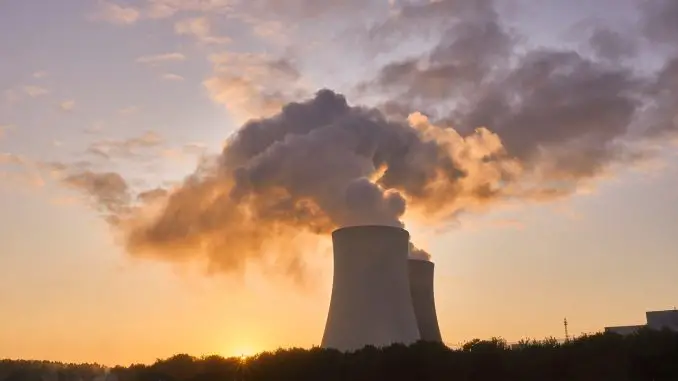
Nuclear power is a much-debated topic that often leads to hot feelings. It has been talked about that nuclear power can be a solution to the climate challenge. But is that correct? How does nuclear power really affect the environment?
It is frequently discussed whether nuclear power is good or bad for the environment.
First, you might be wondering how nuclear power plants work? In simplified terms, today’s nuclear power plants are powered by nuclear atomic fission, uranium, which gives off energy that heats water to steam under high pressure. The steam, in turn, drives turbines that produce electricity.
The benefits of nuclear power
Proponents point out that nuclear power is one of the forms of electricity generation that has the lowest carbon dioxide emissions. As you probably know, carbon dioxide is not a high-rise for the climate as it is the greenhouse gas that contributes most to the enhanced greenhouse effect.
Nuclear power plants are also very efficient since a single large nuclear power plant can produce as much electricity during a year as about 1000 modern wind turbines.
Uranium
There are also disadvantages to this type of electricity generation. Nuclear power affects the environment in the production of fuel. The uranium needed during production must be broken and then a local change in the landscape occurs.
Uranium mining is a very environmentally hazardous activity. The uranium itself is very toxic and in the quarry, large quantities of radioactive residue material are created which risk leakage into the watercourses.
In addition, the issue of waste management has not been resolved. Now the nuclear waste is stored in copper canisters buried 500 meters underground and filled with bentonite clay. However, research shows that the copper risks corroding and that cracking can then occur.
Another major disadvantage of nuclear power is that radioactive substances are created during operation. An accident at a nuclear power plant can mean that radioactive substances are released that can affect the environment in a devastating way.
You may remember the terrible nuclear accident in Chernobyl over 30 years ago? A reactor exploded and a cloud of radioactive particles spread across Europe, resulting in the loss of many lives. There are several other examples, unfortuantely.
Benefits of nuclear power
The advantages of nuclear power are thus that it is the type of electricity generation that emits the least carbon dioxide. It is also a very efficient way of producing electricity.
Negatives with nuclear power
The disadvantages of nuclear power are that uranium is required during production and uranium mining is a very environmentally hazardous activity. The other major disadvantage is that radioactive substances are created during operation, so an accident can have devastating consequences.

Leave a Reply